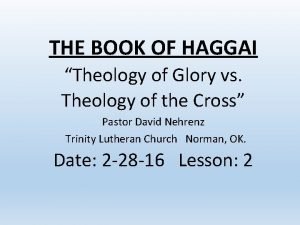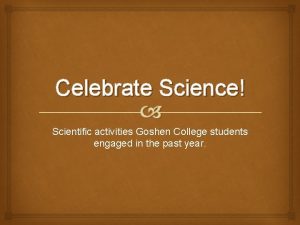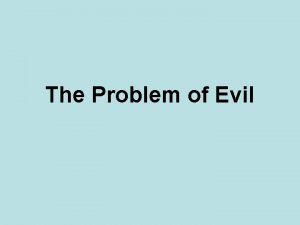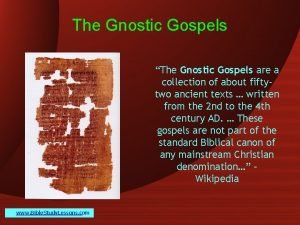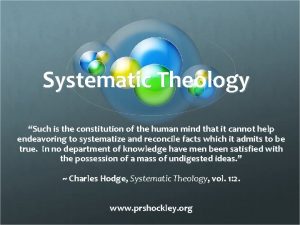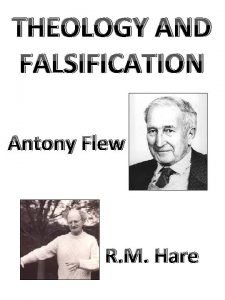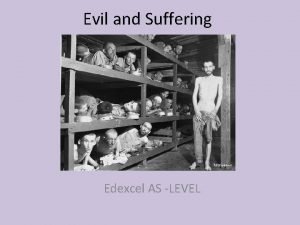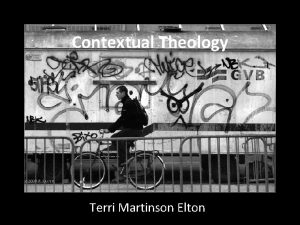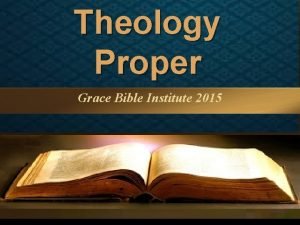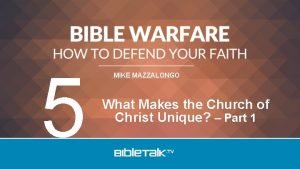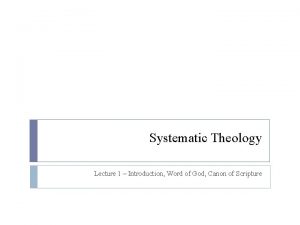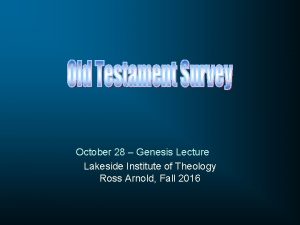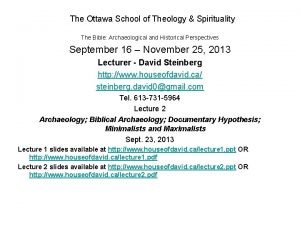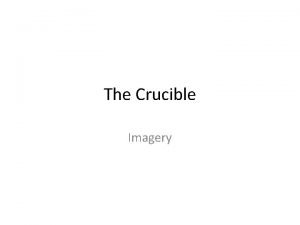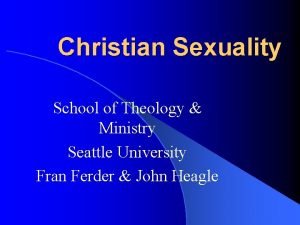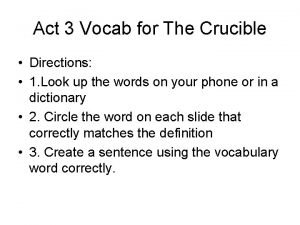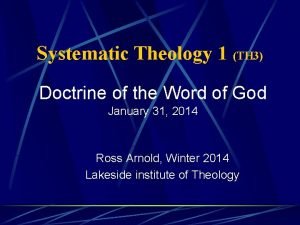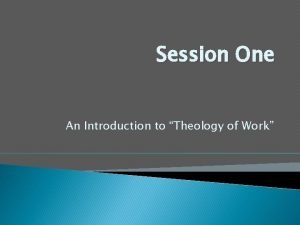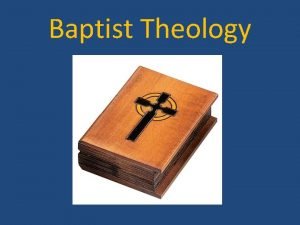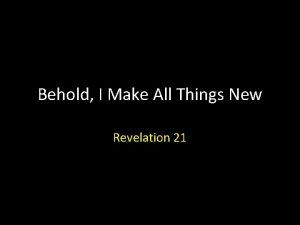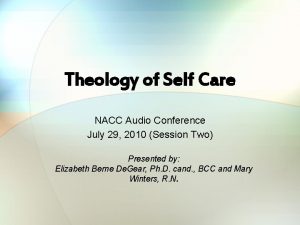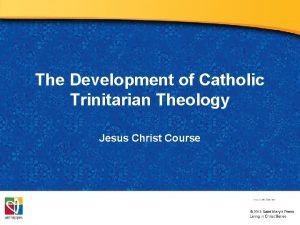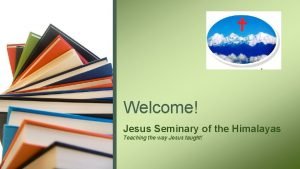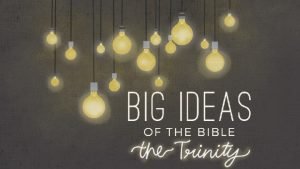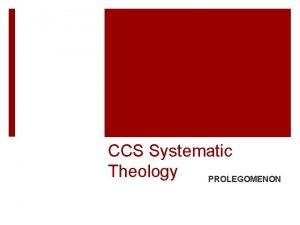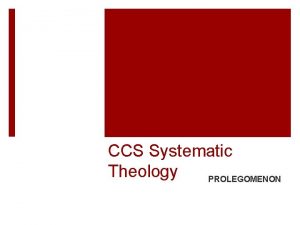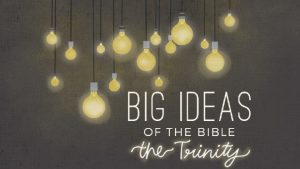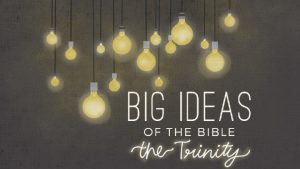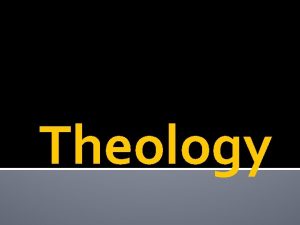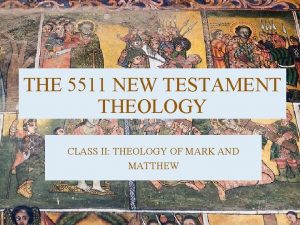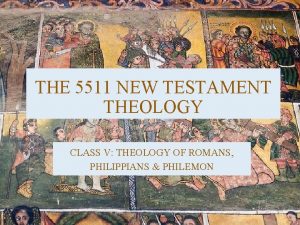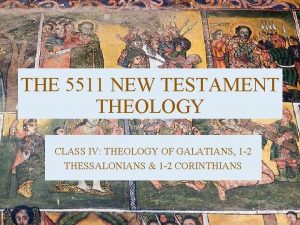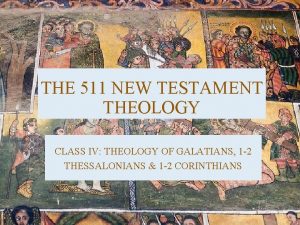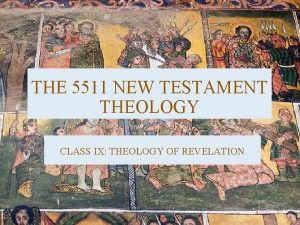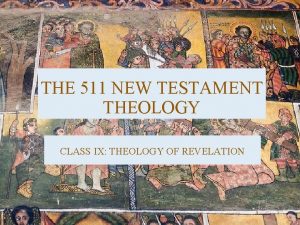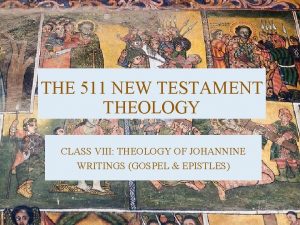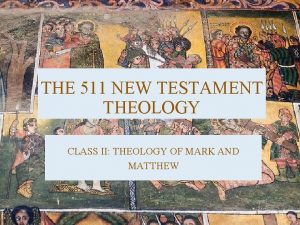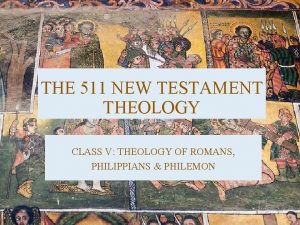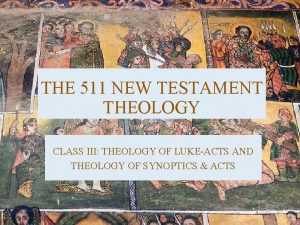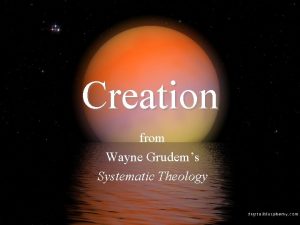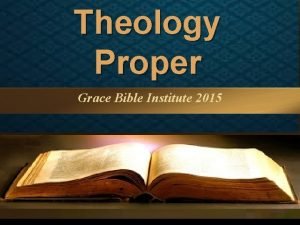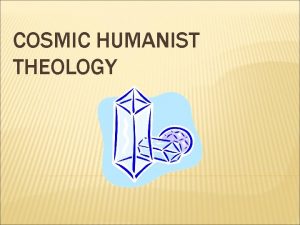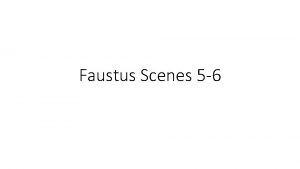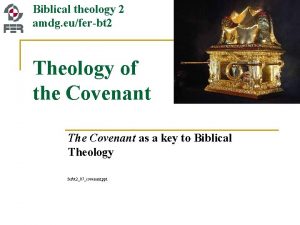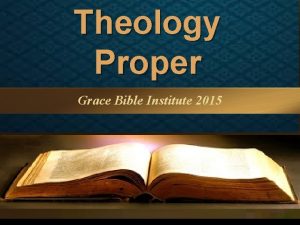Theology from Creation to New Creation Goshen Lectures




























- Slides: 28

Theology from Creation to New Creation Goshen Lectures Overview Copyright R. J. Russell 2005 1

Key topics in theology Our Father who art in heaven, Hallowed be thy Name Thy reign come Thy will be done On earth as it is in heaven. Give us this day our daily bread Forgive us our debts as we forgive our debtors Lead us not into temptation, Deliver us from evil For thine is the Kingdom and the Power and the Glory Forever Creation of heaven and earth Eschatology: parousia Divine action Creation of heaven and earth Moral evil Eschatology: eternal life Copyright R. J. Russell 2005 2

Key topics in theology and the challenge of science Creation of heaven and earth Big Bang cosmology: Divine action Laws of nature / interventionist divine action Moral evil ‘Fall without the Fall’ and natural evil Eschatology: second coming, resurrection and eternal life Big Bang cosmology: – t=0 – ‘only earth’ – ‘freeze or fry’ Copyright R. J. Russell 2005 3

Meeting the challenge: Creative mutual interaction: 2005 Goshen Conference Lectures 1, 2, & 3 Creation of heaven and earth: Lecture 1 --- last night – Assumptions underlying science: Path 6 – t=0: Consonance, Path 1 Conflict, Path 7 Non-interventionist divine action – CTNS/Vatican Observatory series – Paths 3 and 4 ‘Fall without the Fall’: Lecture 2 --- today – Natural and moral evil: Path 3 Eschatology: Lecture 3, tomorrow – Revise eschatology: Paths 3, 4 – New research in science: Paths 6, 7, 8 Copyright R. J. Russell 2005 4

Evolution: Atheism or Theism? Evolution Atheism theistic evolution Copyright R. J. Russell 2005 5

Robust Theistic Evolution: Non-Interventionist Objective Divine Action (NIODA) Evolution Atheism Theistic evolution + NIODA Copyright R. J. Russell 2005 6

Now, theodicy: Evolution Theistic evolution + NIODA Theodicy Copyright R. J. Russell 2005 7

Evolution, Natural Theodicy, and ‘New Creation’ Eschatology Lecture 2 Fifth Annual Goshen Conference on Science and Religion Robert John Russell The Center for Theology and the Natural Sciences Berkeley, California March 18, 2005 Copyright R. J. Russell 2005 8

1. Introduction Life: filled with beauty, torn with pain Biblical account: Created good by God The Fall: leads to suffering and death for humankind Suffering and death in nature, too Copyright R. J. Russell 2005 9

n Evolutionary account: n ‘Natural evil’ --- pain, suffering, disease, death, extinction --- are constitutive of life, part of the biological processes that vastly preceded the human species n Natural evil: consequential constitutive n Yet God is the Creator of life… n Natural theodicy: how can a good and powerful God create life through the processes of evolution when they include natural evil? Copyright R. J. Russell 2005 10

For followers of Darwin, the familiar theological ‘problem of evil’ was turned inside out: evil could henceforth be assumed, and the existential paradox which demanded explanation became, in fact, the problem of goodness. ” David Oates, Zygon, 1988 "The universe we observe has precisely the properties we should expect if there is at bottom no design, no purpose, no evil and no good, nothing but pointless indifference. " Richard Dawkins, Science, 1997 Copyright R. J. Russell 2005 11

I don’t want to achieve immortality through art. I want to achieve it by not dying. Woody Allen Copyright R. J. Russell 2005 12

2. Reconstructing robust traditional theodicies n Criteria: n n n avoid Manichean option that God created natural evil avoid Pelagian option that unaided human will is sufficient to overcome moral evil must work with neo-Darwinian evolution, in particular the constitutive character of natural evil for life Copyright R. J. Russell 2005 13

3. Augustinian ‘free-will’ theodicy • ‘Creation/fall’ account of the origin of moral and natural evil: – all that is is created good (evil is not a ‘thing’) – evil is the result of sin: the abuse of free will by Adam and Eve propagated to all humanity – meets criteria 1 + 2. • Retrieving Augustine: Reinhold Niebuhr (1941): “sin is unnecessary but inevitable” (anti-Manichaean) (anti-Pelagian) Copyright R. J. Russell 2005 14

Extending the Augustinian ‘free-will’ theodicy • Engaging biology: • Genetic inheritance: – genetic determinism? • gene myth in culture (Ted Peters) • twins research (Lindon Eaves) genetic predisposition, not determinism • Genes and the capacity for morality – sociobiology: origin of ‘values’ as survival mechanism • Michael Ruse origin of capacity for values as surplus to reason • Francisco Ayala Copyright R. J. Russell 2005 15

Extending the Augustinian ‘free-will’ theodicy • Engaging biology … and physics • “unnecessary” “contingent” • “inevitable” “universal” • What about biology and physics is both contingent and universal? Copyright R. J. Russell 2005 16

Extending the Augustinian ‘free-will’ theodicy to thermodynamics: – applies universally to all physical systems and therefore all biological systems – 19 th c: classical thermo and closed systems: • entropy: measure of available energy / of disorder • 2 nd law: inevitable increase in entropy Copyright R. J. Russell 2005 17

Extending the Augustinian ‘free-will’ theodicy to thermodynamics – 20 th c: non-linear, non-equilibrium thermo and open systems (within larger closed systems) • inevitable increase in entropy of larger system • contingent and spontaneous decrease in entropy / increase in order in open subsystems • ‘order out of chaos’ (Ilya Prigogine) • not material but a measure of the energy of a material system • AND intrinsic to processes that we name as good! Copyright R. J. Russell 2005 18

Extending the Augustinian ‘free-will’ theodicy to cosmology • why did God create a thermodynamic universe since then natural evil will be universal? “cosmic theodicy” • The best (only? ) response: eschatology – the goodness of creation lies ultimately in the new creation into which it will be transformed by God’s new action starting with the bodily resurrection of Jesus Copyright R. J. Russell 2005 19

4. Schleiermacher’s ‘developmental’ theodicy 19 th century Original perfection of the world: – God’s purposes can be accomplished through natural processes Original righteousness of humankind: – our capacity for religious experience – feeling of our relative dependence on the world can lead us to feel our absolute dependence on God Copyright R. J. Russell 2005 20

Schleiermacher’s ‘developmental’ theodicy 19 th century Sin: obstruction of our awareness of God due to our dependence on the world – virtually inevitable (we are biological creatures) yet not necessary (Jesus was sinless) Natural evil: part of the prehuman environment, not the result of the ‘Fall’ Copyright R. J. Russell 2005 21

Schleiermacher’s ‘developmental’ theodicy 20 th century § Retrieval: John Hick (1966) § pain and suffering are necessary for “soul-making” § haphazard and unjust distribution are necessary if the right is to be chosen for its own sake § “epistemic distance”: the world must be ‘as if there were no God’ § helps to account for moral evil § helps to account for natural evil Copyright R. J. Russell 2005 22

Schleiermacher’s ‘developmental’ theodicy § epistemic distance”: the world must be ‘as if there were no God’ § Russell: makes methodological naturalism (and thus natural science) possible § a ‘soul-making’ world will rule out referring to a divine designer as part of a scientific theory “Don’t put God into my equations” is right for theological reasons! § a ‘soul-making’ world will be one in which theism and atheism can both flourish Copyright R. J. Russell 2005 23

Extending Schleiermacher’s ‘developmental’ theodicy § Scholars in theology and science: Extending Schleiermacher/Hick to natural evil § Kenosis: the self-emptying of Christ in the Incarnation and Christ’s humbling to death on a cross (Phil 2: 5 -8) § Recent kenotic theology: God loves AND suffers with humanity § Kenosis in ‘theology and science’: God loves AND suffers with all life, including humankind Copyright R. J. Russell 2005 24

Schleiermacher’s ‘developmental’ theodicy § Hick: Gravest challenge: excessive suffering + a ‘means-end’ argument § Dostoievski: The Brothers Karamazov § Eschatology: the only possible context for responding to theodicy § The overall goodness of creation lies not in the present, as with Augustine, but in the eschatological future. Copyright R. J. Russell 2005 25

5. Frontier Challenge: eschatology and cosmology n The ‘far future’ of the universe according to science: § ‘freeze’ or ‘fry’ --- expand forever or recollapse § the extinction of all life in the universe in the ‘near’ future n Scholars in ‘theology and science’: § some acknowledge the challenge, very few respond to it Key area for ongoing research in theology and science Lecture 3 tomorrow Copyright R. J. Russell 2005 26

The frontier challenge: Evolution theistic evolution + NIODA Theodicy Eschatology and Cosmology Copyright R. J. Russell 2005 27

§ Thank you… § Slides taken from: – http: //www. smipp. com/ICHNEMOD. HTM – http: //www. geocities. com/brisbane_wasps/ICHNEUMONIDAE. htm Copyright R. J. Russell 2005 28
 Book of haggai
Book of haggai New creation theology
New creation theology Goshen market foundation
Goshen market foundation Nathan goshen engaged
Nathan goshen engaged Inconsistent triad
Inconsistent triad David e. pratte wikipedia
David e. pratte wikipedia Biblical theology
Biblical theology Antony flew falsification
Antony flew falsification Mackies inconsistent triad
Mackies inconsistent triad Praxis model of contextual theology
Praxis model of contextual theology What is theology proper
What is theology proper Mike mazzalongo church
Mike mazzalongo church Theology proper lecture notes
Theology proper lecture notes Lakeside institute of theology
Lakeside institute of theology Ottawa school of theology and spirituality
Ottawa school of theology and spirituality Symbols in the crucible
Symbols in the crucible Seattle university school of theology and ministry
Seattle university school of theology and ministry Act 3 vocab the crucible
Act 3 vocab the crucible Antony flew theology and falsification
Antony flew theology and falsification 5 pillars of reformed theology
5 pillars of reformed theology What is theology
What is theology Theologian
Theologian Theology of missions
Theology of missions Theology
Theology Baptist theology
Baptist theology Revelation 21:9-10
Revelation 21:9-10 Theology of self care
Theology of self care The development of catholic trinitarian theology
The development of catholic trinitarian theology Himalayan graduate school of theology
Himalayan graduate school of theology
